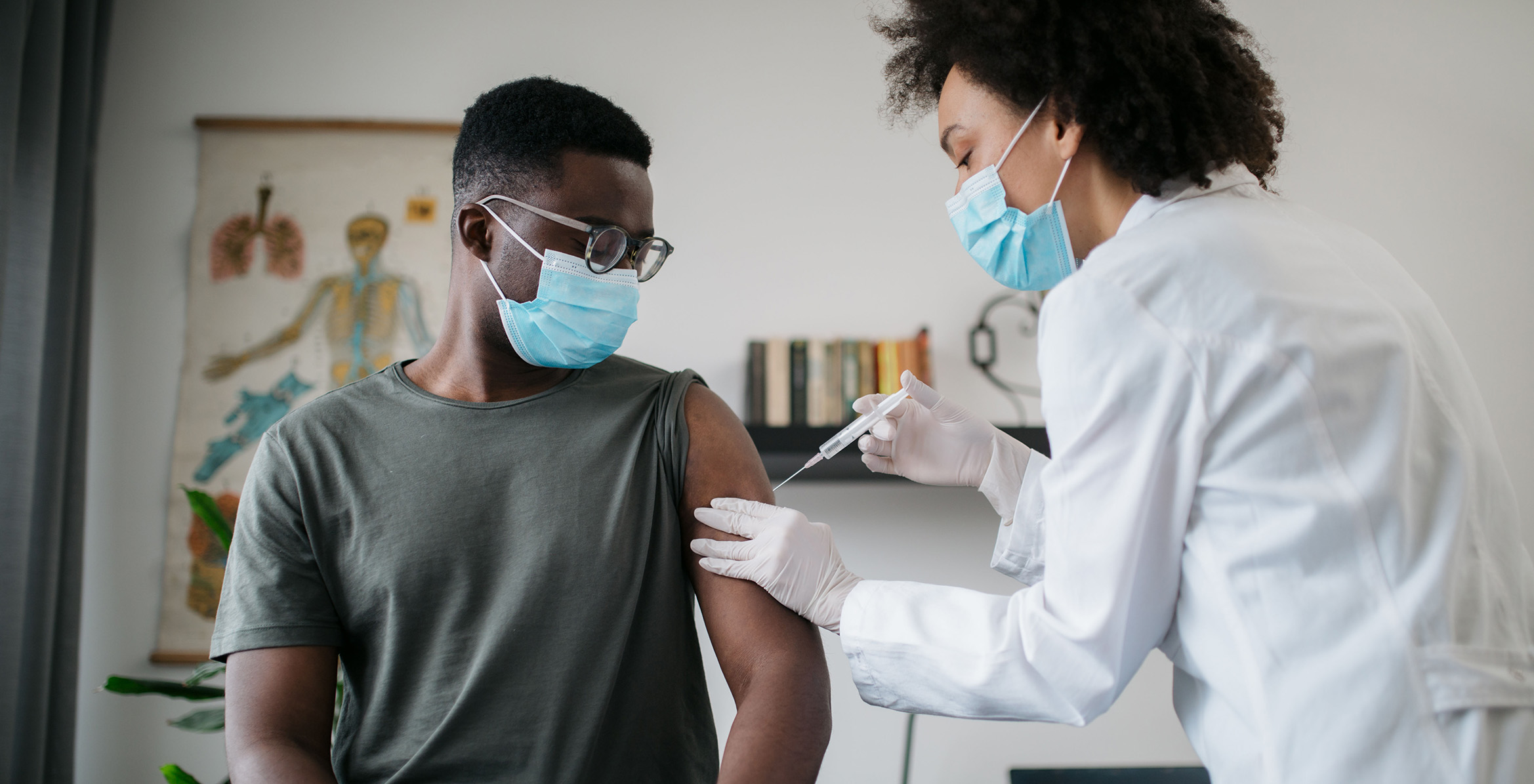Whether you are young, getting older or somewhere in between, staying up to date on immunizations is an important component of your overall health and wellness. Here are five reasons why:
By educating ourselves, asking questions and getting our recommended immunizations, we can keep ourselves and loved ones safe from many preventable diseases.
- Vaccines are safe. Our country has an intense approval process to ensure that all licensed vaccines are safe. Potential side effects are uncommon for most people and are often much less severe than the diseases they prevent. Vaccines contain killed or weakened viruses, making it impossible to get the disease from the vaccine. Instead, the vaccine helps to improve your resistance to a particular disease. Learn more about the approval process and vaccine hesitancy if you have additional questions.
- Vaccines keep you healthy. The Centers for Disease Control and Prevention (CDC) recommends vaccinations throughout different stages in your life to protect you against many infections. When you skip them, you leave yourself open to illnesses such as COVID-19, the flu, shingles, hepatitis B and more.
- Vaccines can be the difference between life and death. Vaccine-preventable diseases have not gone away and can be passed on to people who are not vaccinated against them. These infections can be deadly. Thousands of Americans die every year from vaccine-preventable diseases.
- Vaccines keep you productive. Sickness from the flu or hepatitis A, for example, can cause people to miss several days of school or work.
- Vaccines prevent the spread of diseases to vulnerable people. When you’re sick, your children, grandchildren and older adults in your life may be at greater risk for severe illness or complications. For example, most babies who get whooping cough, which can be deadly, get it from the adults in their lives.
Vaccines: When to Do It and Which Ones to Get?
Recommendations for getting vaccinated depend on your age, sex, health status and family history. Here are some general guidelines and information:
Childhood
Vaccinations done on time throughout childhood help provide immunity before children are exposed to potentially life-threatening diseases. Routine vaccinations during childhood help prevent 14 diseases. As your child grows, protection from childhood vaccines wears off, and adolescents might need additional vaccines to extend protection, as well as additional vaccines for different infections. If you’re worried about the side effects of any recommended vaccine, be sure to talk to your health care provider.
Pregnancy
By staying up to date with vaccines before and during pregnancy, you can pass along immunity that will help protect your baby from certain diseases during the first few months after birth. Vaccines may also protect you from serious illnesses while you are pregnant. For example, rubella, a vaccine-preventable disease, can cause miscarriages and birth defects.
Adults
Every year, thousands of adults experience serious health problems and even die from diseases that could be prevented by vaccines. Thousands more miss work, become ill and take on medical expenses from vaccine-preventable illnesses. Here is a general list of important vaccines to consider:
- Influenza – because influenza viruses are constantly changing, this vaccine is recommended every year for every age group, especially those at high risk for serious flu complications
- Shingles – this vaccine is recommended for healthy adults 50 years and older
- Hepatitis A and B
- Chickenpox
- Measles, mumps and rubella
- Tetanus, diphtheria (TD)– the TD vaccine is recommended every 10 years
- Human papillomavirus (HPV)
- Streptococcus pneumococcal pneumonia – this is recommended for adults 65 years and older, as well as for some adults younger than 65 with certain conditions
- Pertussis (whooping cough)
- COVID-19
Certain vaccines are recommended based on your age, occupation or if you have certain health conditions such as asthma, diabetes or heart disease. Learn more about the vaccines and which ones are recommended for you on the Department of Veterans Affairs (VA) Vaccines and Immunization page.
Questions About Vaccines and Medications Received While Serving
Some Veterans have raised concerns about certain vaccines and medications they received while serving in the military, including vaccines such as anthrax and smallpox, as well as medications such as mefloquine. If you are concerned about long-term side effects from vaccinations or medications during your military service, talk to your health care provider or contact your local VA Environmental Health Coordinator to help you get more information.
Resources
- The CDC offers immunization schedules based on age that can be printed and shared with your health care provider.
- My HealtheVet offers a way for you to sign in to your VA health records and view your vaccine list if you use VA health care system.
- Get answers to your COVID-19 vaccine questions, as well as information on how to receive one through VA here.
By educating ourselves, asking questions and getting our recommended immunizations, we can keep ourselves and loved ones safe from many preventable diseases. If you have questions or concerns about your vaccination status or vaccines in general, reach out to a trusted health care provider.








